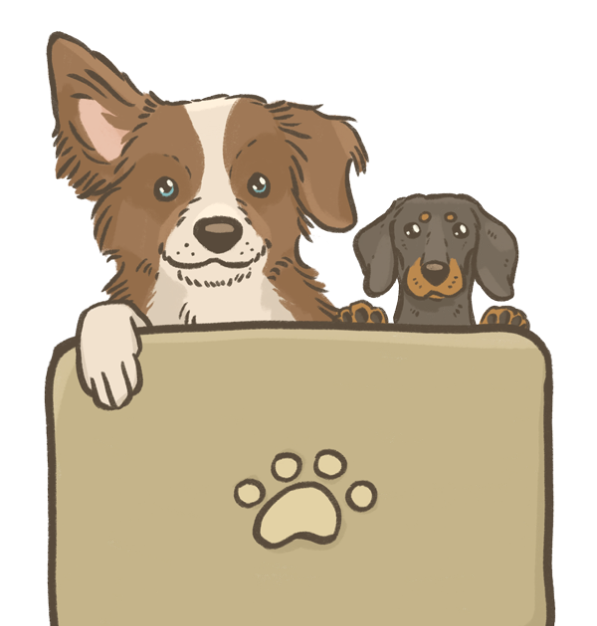Caring for your senior dog

Not all dogs are considered seniors at the same age, it really depends on the individual dog. Generally, giant breed dogs age faster than smaller breed dogs. A Great Dane is considered to be senior by roughly 5-6 years old whereas a little Chihuahua would probably not be considered a senior until 10-11 years.
Genetics, nutrition, environment all play a role in how fast your dog ages. Prepare yourself for the first signs of ageing so that you can take the necessary steps to support your dog through their senior years, particularly with a specialised senior dog food.
As animals age, their health status changes faster than their younger counterparts. Issues common in senior pets include arthritis, heart disease, cataracts, organ failure, cognitive decline, hearing or vision loss, and tumours. More frequent health checks with your vet may help detect issues early on, so your senior pet can live as long and happily as possible.
Providing your senior dog with the right diet will also help. It is usually recommended to offer your senior dog a lower calorie diet as their metabolism, energy levels and exercise routine slows down. A senior dog food with good quality protein, supportive nutrients and low in calories may be the perfect option for your pet.
Feed them fresh to keep them fresh
At Big Dog we create diets for all sizes and ages. Here are our recommendations for senior dog food.
Our Wellbeing diet is formulated specifically for an ageing dog. Most ageing pets will start to put a little weight on and whilst they are cute and cuddly, just like us, it’s not recommended that they carry too much extra weight. Extra weight has its own detrimental health effects, but it can also cause extra pressure on their joints, and again this is where arthritis starts to rear its ugly head. Unfortunately there is a pattern, weight gain leads to inflammation, which leads to arthritis.
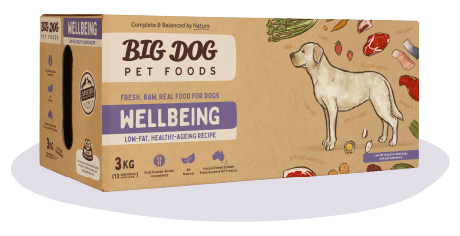
The Wellbeing diet is a lower fat diet (at 7.5% fat) than our standard range of diets, you will also find the protein has been reduced, not significantly, but reduced enough so we can include a more extensive range of ingredients that will fight against inflammation and assist healthy ageing. It also has a phosphorus level of 0.2% for those that may need to reduce the phosphorus in their senior pet's diets.
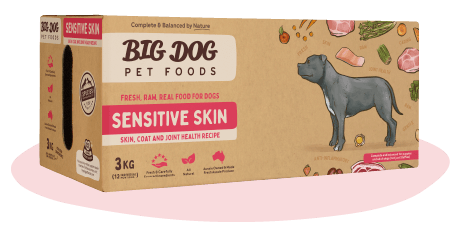
Our Sensitive Skin recipe is loaded with anti-inflammatory goodness, which is great for nourishing skin conditions but also fantastic for joint health. Sensitive Skin raw food diet contains excellent sources of anti-inflammatory omega-3 fatty acids from whole salmon and sardines. Anti-inflammatory ingredients join these in the form of cold pressed coconut oil and turmeric. This unique recipe is also perfect for dogs with arthritis who need anti-inflammatory dietary support to help manage this condition. Sensitive Skin is higher in fat than Wellbeing, at 13% fat. It's also available in Raw Bites and Rolls to suit dogs of different sizes.
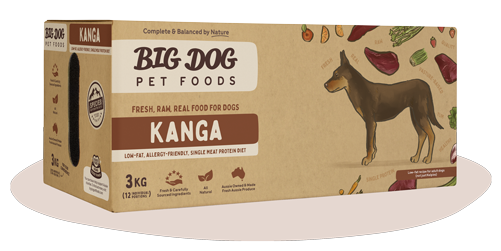
Another low-fat option for our senior dogs is our Kanga Single Protein recipe. Kangaroo is a rich protein source and a perfect alternative for dogs who are allergic to other meat proteins. Low in fat and easy to digest, Kanga is suitable for overweight dogs or dogs that need a low fat diet for medical conditions as advised by your veterinarian. Being a wild game source, Australian kangaroo has minimal to no exposure to environmental chemicals, making it even more suitable for dogs that suffer from allergies. Our Kanga recipe is a beauty and our lowest in fat at only 5%.
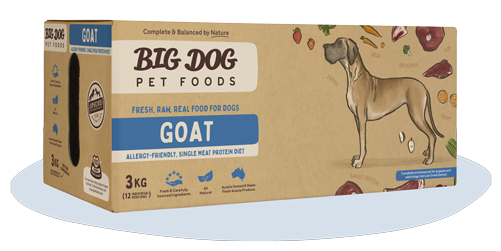
Our Goat recipe is another single protein option that may be beneficial for senior dogs. Another rich protein that is easy to digest, low-allergen and lower in fat at 8.5%. Like our Wellbeing, it also has a phosphorus level of 0.2% for seniors that may need less phosphorus in their diet.
For dogs with health conditions that require extra support, we recommend you check out our Nourish Nutrition range.
Don’t let zoomies become gloomies
As your dog gets older, you may need to provide them with some special accommodations and modify their exercise regime. It’s important to do regular exercise to help maintain muscle mass and keep their joints mobile, this may be achieved with a suitably-paced walk or light jog. Stopping for lots of sniffs will be great for their mental health and provide them with rest breaks.
Dogs with arthritis might benefit from soft bedding to sleep on, make stairs easier to navigate or provide ramps (or avoid altogether). Some families provide carpeting or rugs over hard-surface flooring to make it easier for their dog to gain their footing and get around the house.
Some older dogs may go blind (partially or completely), and it’s recommend not to make too many layout changes in your house or move furniture around if you can avoid it. This will reduce confusion and the chance of them bumping into furniture.
Cognitive decline in senior dogs is very common and less spoken about. Some pet parents experience a restless dog through the night with frequent waking, pacing or vocalisation. Some dogs may begin to get lost in their own home or yard and even have trouble with familliar faces. Dr Nicole Rous discusses cognitive decline in pets on the Paws and Listen Podcast.
We also recommend keeping up with your dog’s grooming and closer monitoring of their skin for possible lumps. Cancer is more prevalent in ageing dogs, so ensure you monitor any changes in your pet. Be sure to maintain, or possibly, increase your check ups with your vet as they age to keep ahead of any potential issues if they arise.
These changes in your dog won’t happen overnight so you and your dog will have time to adjust to these changes. Taking good care of them now to make life easier so you can keep them young and enjoy them.
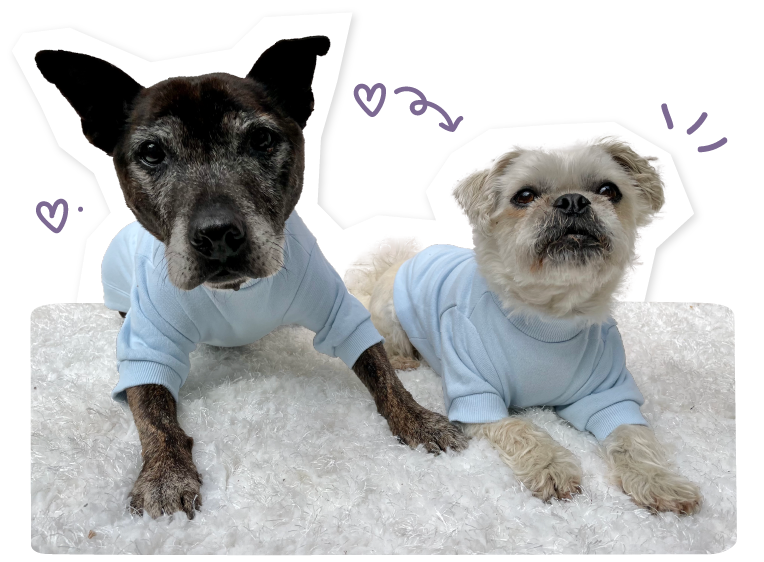
Read more on Senior raw food diets with Canine Nutritionist, Narelle Cooke
